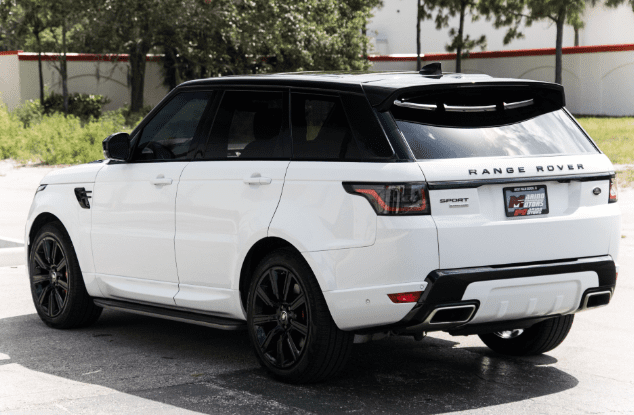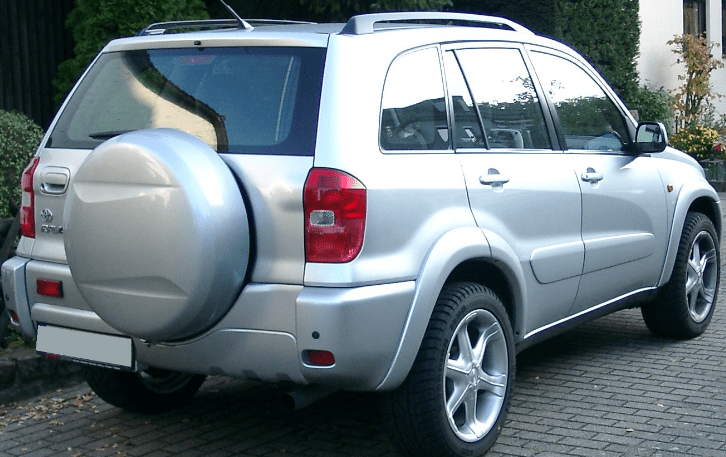[Finally Fixed] Range Rover Transmission Problems & Repair Cost
Last Updated on October 20, 2023 by Robert Wilson
If you’re a Range Rover owner, you probably cherish the same luxury, performance, and style that drew me to these exceptional vehicles.
However, owning a Range Rover means dealing with common problems that I, too, have faced.
In this article, we’ll take a personal and informative journey through the most common Range Rover problems, sharing my experiences and expert advice.

If you’re considering purchasing a Range Rover, you may be wondering about the reliability of the vehicle.
While Range Rovers are generally considered to be reliable vehicles, there have been reports of transmission problems.
If you’re concerned about potential transmission problems with a Range Rover, it’s important to keep in mind that this is typically an issue with older models.
The newer model Range Rovers have been designed with updated transmissions that are much less likely to experience problems.
Overall, while there is always a risk that any vehicle could experience mechanical problems, the chances of having serious transmission issues with a Range Rover are relatively low.
Most Common Range Rover Issues
Several typical indications of a malfunctioning Range Rover transmission may encompass: experiencing shuddering around 2000rpm, sluggish gear engagement and shifting, and encountering difficulties in changing gears when the vehicle is cold.
Owning a Range Rover has been a remarkable journey for me. These vehicles offer a unique blend of luxury and off-road capability that is hard to match.
But they’re not without their quirks. Just like you, I’ve encountered several issues along the way, from air suspension problems to engine woes.
In this section, I’ll share my firsthand experiences and offer practical solutions for dealing with the most common Range Rover problems.
Range Rover Problems & Solutions
Air Suspension Issue
I vividly remember the first time I noticed the air suspension issue in my Range Rover. It felt like a bumpy rollercoaster ride, and it turned out I had an air leak. It’s a common problem that can lead to sagging and discomfort.
My Advice: Regular maintenance is a must. Check the airbags and lines, and don’t ignore any warning lights on the dashboard.
Differential Issue
Differential problems can disrupt your Range Rover’s performance. The odd noises and poor traction I experienced were signs of a differential issue. It turned out to be a differential oil leak.
My Advice: If you hear strange noises or notice reduced traction, don’t wait. Consult a specialist to inspect your differential.
Engine Problems
My Range Rover once suffered from engine issues, particularly oil and coolant leaks. Overheating became a significant concern, and I was worried about the cost of repairs.
My Advice: Regular maintenance and prompt addressing of leaks are crucial. Don’t hesitate to change oil and check coolant levels.
Braking Issue
Brake problems are more than a nuisance; they’re a safety issue. The squeaky brakes and spongy pedal I encountered had me on edge.
My Advice: Don’t compromise on brake maintenance. Timely pad and rotor replacements are a must. If you hear any unusual noises or have pedal issues, consult a certified technician.
Pesky Electrical Elves
Electrical problems in my Range Rover caused malfunctions in the infotainment system and power windows. It was frustrating, to say the least.
My Advice: Regularly inspect and maintain the electrical components. If you notice any strange electrical behavior, seek a specialist’s help.
Leaking Oil
Oil leaks and fluid drips under my vehicle were alarming. I learned that gasket and seal damage could lead to these leaks.
My Advice: Keep a close eye on your car’s underside. If you see oil spots, consult a mechanic to prevent further damage.
Power Engine Issue
Experiencing a drop in power was disheartening. Issues with the turbocharger or supercharger can lead to reduced performance and fuel efficiency.
My Advice: Regular maintenance is your best ally. Don’t ignore any performance problems, and consult a specialist if you notice a decrease in power or strange engine sounds.
Strange Noises
Despite being known for their build quality, Range Rovers can exhibit issues like rattles and interior squeaks, even malfunctioning features.
My Advice: Regularly inspect your vehicle for unusual noises or problems with interior features. Many of these issues can be addressed during routine maintenance.
Fuel Issues
I’ve been in a situation where inaccurate fuel gauge readings left me stranded with an empty tank. Range Rovers can have issues with their fuel gauge sensors.
My Advice: Always double-check your fuel level. If your gauge seems erratic, consult a Range Rover technician to avoid running out of gas unexpectedly.
Transmission Problems
Dealing with transmission issues can be a headache for any vehicle owner. Range Rovers can face problems with their automatic or manual transmissions, leading to rough shifts and reduced performance.

My Advice: Maintain your transmission by regularly changing the fluid. If you experience rough shifts or transmission slipping, consult a specialist for diagnostics.
Rust Problems
Rust issues are more common than you might think, especially if you live in a humid or salt-prone environment.
My Advice: Regularly inspect your vehicle, especially the undercarriage, for signs of rust. Address rust problems promptly to prevent further corrosion.
How Much Does It Cost to Fix a Transmission on a Range Rover?
If your Range Rover needs a new transmission, it could cost you upwards of $8,000.
That said, the price could be lower if you get the work done at an independent shop rather than through a dealership.
You might also be able to save on labor costs by doing some of the work yourself.
Range Rover Automatic Gearbox Problems
If you own a Range Rover, there’s a good chance you’ve experienced some type of automatic gearbox problem. Whether it’s a hard shift, delayed engagement, or complete failure, these issues can be extremely frustrating and expensive to fix. Here’s a detailed look at some of the most common Range Rover automatic gearbox problems.
Hard Shifts: One of the most common Range Rover automatic gearbox problems is hard shifts. This can happen when shifting from Park to Drive, or when shifting between gears while driving. The shift may feel jerky or abrupt, and it can be accompanied by a loud thumping noise.
Hard shifts are usually caused by low transmission fluid levels, but they can also be caused by worn transmission components or software issues. Delayed Engagement: Another common issue is delayed engagement, which is when the transmission takes longer than normal to engage into drive or reverse. This can be dangerous if you’re trying to pull out into traffic or back up in an emergency situation.
Delayed engagement is often caused by low transmission fluid levels, but it can also be caused by dirty transmission fluid or worn clutches. Complete Failure: In some cases, the transmission may completely fail to engage into any gear. This usually happens when the transmission fluid level is very low (or empty), but it can also happen if the clutch pack has failed entirely.
FAQs
Q: Are Range Rovers reliable vehicles despite these common problems?
A: While Range Rovers offer a luxurious driving experience, they can be less reliable than some other brands. Proper maintenance and prompt issue resolution are key to a trouble-free experience.
Q: How can I reduce the chances of encountering these problems?
A: Regular maintenance, including oil changes, fluid checks, and inspections, can help prevent many common Range Rover problems.
Q: Are Range Rover repairs expensive?
A: Yes, Range Rover repairs can be costly, especially if you’re out of warranty. Consider an extended warranty or budget for maintenance expenses.
Q: Is it worth buying a Range Rover despite these issues?
A: Range Rovers offer a unique blend of luxury and off-road capability. If you’re willing to invest in maintenance and repairs, they can be a rewarding choice.
Q: What should I do if I encounter one of these problems?
A: Consult a certified Range Rover technician as soon as you notice an issue. Prompt attention to problems can prevent more extensive and costly repairs.
Q: Can I perform any of these repairs myself?
A: While some basic maintenance tasks can be done by DIY enthusiasts, many Range Rover issues require specialized tools and expertise. It’s best to consult a professional.
Conclusion
Owning a Range Rover is an adventure that combines luxury and performance, but it’s vital to be aware of the common problems that may arise.
My personal experiences and advice emphasize regular maintenance, quick issue resolution, and budgeting for repairs.
With the right care, your Range Rover can provide years of luxurious and exhilarating driving.

